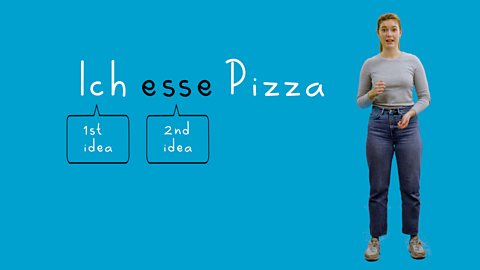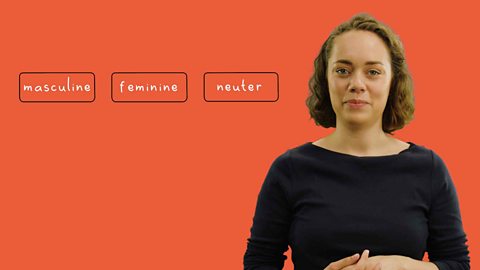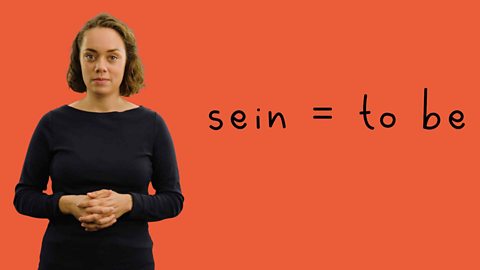Haben is an important verb to know. You can use it to say you have something and use it in lots of useful phrases. Haben is an irregular verb in the present tense, meaning it doesnвҖҷt follow the same pattern as regular verbs.
How to use the verb 'to have' in German
The verb haben - to have- is really useful and will help you say lots of things!
Ich habe - I have
Du hast - you have
Er, sie, es hat - he, she, it has.
Haben helps you to talk about your family: Ich habe einen Bruder - I have a brother.
Or about your pets: Ich habe eine Katze - I have a cat.
It helps you say what you look like: Ich habe lange Haare - I have long hair.
And what things you have: Ich habe ein Buch вҖ“ I have a book.
And if someone else has something then itвҖҷs: er hat - he has, sie hat - she has, and you might also need es hat - it has.
Er hat einen Bruder - he has a brother.
Sie hat zwei Hunde - she has two dogs.
Es hat eine TГјr вҖ“ it has a door.
If you ask someone a question you flip du hast - you have - into hast du? - вҖҳhave you?вҖҷ
Hast du Geschwister? - Do you have any siblings?
Hast du ein Haustier? - Do you have a pet?
So a little recap:
Ich habe - I have
Du hast - you have
Er, sie, es hat - he, she, it has.
'Haben' in the present tense
You can find the conjugations of haben in the present tense in the table below.
| English | German | Examples |
|---|---|---|
| I have | ich habe | Ich habe Pizza zum Mittagessen - I have pizza for lunch. |
| you have | du hast | Du hast einen Computer - You have a computer. |
| he has | er hat | Er hat eine Katze - He has a cat. |
| she has | sie hat | Sie hat lange Haare - She has long hair. |
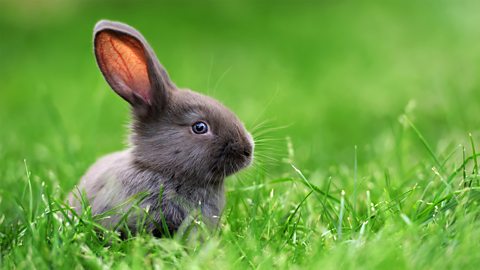
When to use 'haben'
You can use haben to talk about lots of things you have, including:
Family members
- Ich habe zwei Schwestern - I have two sisters.
Pets
- Sie hat ein Kaninchen - She has a rabbit.
Describing physical appearance
- Du hast blonde Haare und blaue Augen - You have blonde hair and blue eyes.
Saying you have an object
- Ich habe ein Buch - I have a book.


'Haben' and 'to be'
Sometimes haben is used where you would use to be in English, for example:
- Ich habe am ersten Januar Geburtstag - My birthday is the 1st January.
- Ich habe Hunger - I am hungry.
- Sie hat Durst - She is thirsty.
- Ich habe іТұфГјіҰ°м - I am lucky.
- Ich habe Recht - I am right.

Using 'haben' in questions
You can use haben to ask questions. In sentences, the verb needs to be the second idea, but in questions, the verb comes first. This is called inversion.
- Du hast - You have
- Hast duвҖҰ? - Do you haveвҖҰ?
- Hast du Geschwister? - Do you have any brothers and sisters?
- Hast du Haustiere? - Do you have any pets?
- Hat deine Mutter blonde Haare? - Does your mother have blonde hair?
- Hat deine Stadt ein Theater? - Does your town have a theatre?
Using 'haben' in the past tense
To talk about the past, you can use ich hatte, meaning I had. This is the imperfect tense. You can find more conjugations in the table below:
| English | German | Examples |
|---|---|---|
| I had | ich hatte | Ich hatte Pizza zum Mittagessen - I had pizza for lunch. |
| you had | du hattest | Du hattest einen Computer - You had a computer. |
| he had | er hatte | Er hatte eine Katze - He had a cat. |
| she had | sie hatte | Sie hatte lange Haare - She had long hair. |
Using 'haben' in the future tense
To talk about what you will have in the future, use a conjugation of the verb werden with haben. The form of werden has to be the second idea in the sentence and haben moves to the end of the sentence. You can find the conjugations of werden in the table below.
| English | German | Examples |
|---|---|---|
| I will have | ich werde вҖҰ haben | Ich werde eine Pizza zum Mittagessen haben - I will have a pizza for lunch. |
| you will have | du wirst вҖҰ haben | Du wirst einen Computer haben - You will have a computer. |
| he will have | er wird вҖҰ haben | Er wird eine Katze haben - He will have a cat. |
| she will have | sie wird вҖҰ haben | Sie wird lange Haare haben - She will have long hair. |
Quiz
Find out how much you know aboutВ haben in this short quiz!
Where next?
Discover more from around Bitesize.
KS3 German
KS3 German
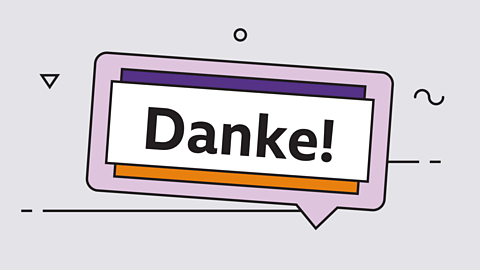
More on Grammar
Find out more by working through a topic
- count7 of 8
